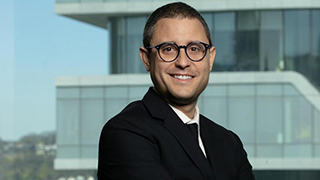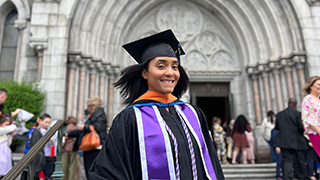2020 introduced a new coronavirus pandemic that affected not only healthcare systems
worldwide, but every sphere of life. As humanity adjusts to the forms and conditions
of the new way of living, so does the School of Diplomacy's expert faculty. In addition to developing a new way of teaching through our Hyflex
model, faculty are sharing their expertise in a new way to advance their impact in
the global community.
Annual conferences, held for decades at the same places and times, are now happening
virtually. An expedited digitalization has replaced face-to-face communication in
the industry, but it has not prevented the exchange of ideas so valuable to international
progress and policy. Even though our lives seemed to slow down for a little while,
the School of Diplomacy's community of experts has continued tirelessly working and
conducting research that is being sought internationally by prestigious industry leaders.
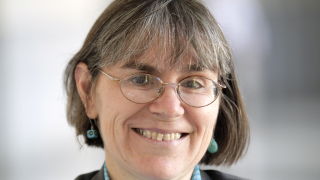 On September 22nd, Margarita Balmaceda, Professor, presented "Energy and Authoritarian Resilience in Belarus" at Harvard's comparative politics seminar. Dr. Balmaceda and colleagues from MIT
and Fordham engaged in a roundtable to discuss such questions as: What explains an
unprecedented level of mass mobilization against the regime? Is it possible to bring
down an autocrat with the help of nonviolent action? What is the impact of sanctions
on the survival of authoritarianism in Belarus? How will energy dependency on Russia
affect political developments in the former Soviet republic?
On September 22nd, Margarita Balmaceda, Professor, presented "Energy and Authoritarian Resilience in Belarus" at Harvard's comparative politics seminar. Dr. Balmaceda and colleagues from MIT
and Fordham engaged in a roundtable to discuss such questions as: What explains an
unprecedented level of mass mobilization against the regime? Is it possible to bring
down an autocrat with the help of nonviolent action? What is the impact of sanctions
on the survival of authoritarianism in Belarus? How will energy dependency on Russia
affect political developments in the former Soviet republic?
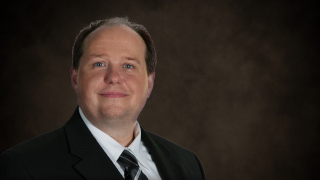 Martin Edwards, Associate Professor, will be presenting at a conference on Sovereign debt management
and renegotiation in Africa this November. This conference is sponsored by the International
Development Law Unit (IDLU) in the Centre for Human Rights at the University of Pretoria.
Martin Edwards, Associate Professor, will be presenting at a conference on Sovereign debt management
and renegotiation in Africa this November. This conference is sponsored by the International
Development Law Unit (IDLU) in the Centre for Human Rights at the University of Pretoria.
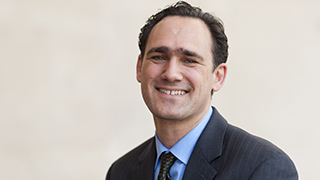 On November 23rd, Benjamin Goldfrank, Professor, and Brian Wampler of Boise State University, will present their work
"The Rise, Spread and near disappearance of PB in Brazil" at the Conference "Participatory
budgeting in 2020: participation without democracy?".
On November 23rd, Benjamin Goldfrank, Professor, and Brian Wampler of Boise State University, will present their work
"The Rise, Spread and near disappearance of PB in Brazil" at the Conference "Participatory
budgeting in 2020: participation without democracy?".
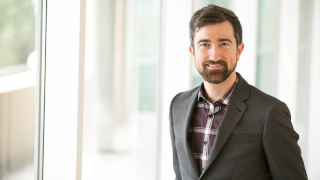 Joseph Huddleston, Assistant Professor, participated in the American Political Science Association's
annual meeting and presented his work "Functional Markets in Yemen's War Economy"
co-authored with David Wood.
Joseph Huddleston, Assistant Professor, participated in the American Political Science Association's
annual meeting and presented his work "Functional Markets in Yemen's War Economy"
co-authored with David Wood.
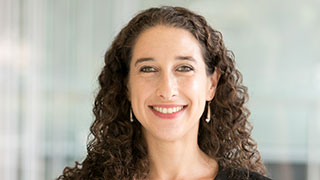 Zinaida Miller, Assistant Professor, gave a talk on international law, temporality,
and the Israeli/Palestinian conflict at The Jurisprudence of Distribution Conference
hosted by Northeastern University School of Law and Boston University Law School.
On October 29th, Dr. Miller will be leading an online human rights workshop "Race,
Transitional Justice and Accountability in the United States" at Yale University.
Zinaida Miller, Assistant Professor, gave a talk on international law, temporality,
and the Israeli/Palestinian conflict at The Jurisprudence of Distribution Conference
hosted by Northeastern University School of Law and Boston University Law School.
On October 29th, Dr. Miller will be leading an online human rights workshop "Race,
Transitional Justice and Accountability in the United States" at Yale University.
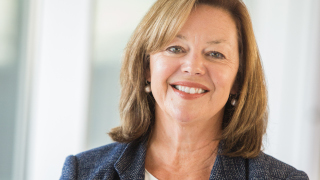 Ann Marie Murphy, Professor and Director, Center for Emerging Powers and Transnational Trends, was
invited by Stanford University to speak at a seminar on Distinguishing Mainland from Maritime Southeast Asia: How Much Does It Matter? Participants examined the differences between subcontinental and archipelagic countries
of Southeast Asia, focusing on regional politics of these countries and their ability
to resist threats to their autonomy from China and other nations.
Ann Marie Murphy, Professor and Director, Center for Emerging Powers and Transnational Trends, was
invited by Stanford University to speak at a seminar on Distinguishing Mainland from Maritime Southeast Asia: How Much Does It Matter? Participants examined the differences between subcontinental and archipelagic countries
of Southeast Asia, focusing on regional politics of these countries and their ability
to resist threats to their autonomy from China and other nations.
Dr. Joseph Huddleston, Assistant Professor, shared his impression of working this
way, "It is definitely not ideal to hold everything online. So many cues and clues
of communication are lost…(But) we have just got to deal with it for a while, and
I am okay with that. We are making it work as well as possible." While something may
be lost in the online format, something is gained in the ability to expand our reach
and impact the global community through faculty expertise and research.
Categories:
Arts and Culture










